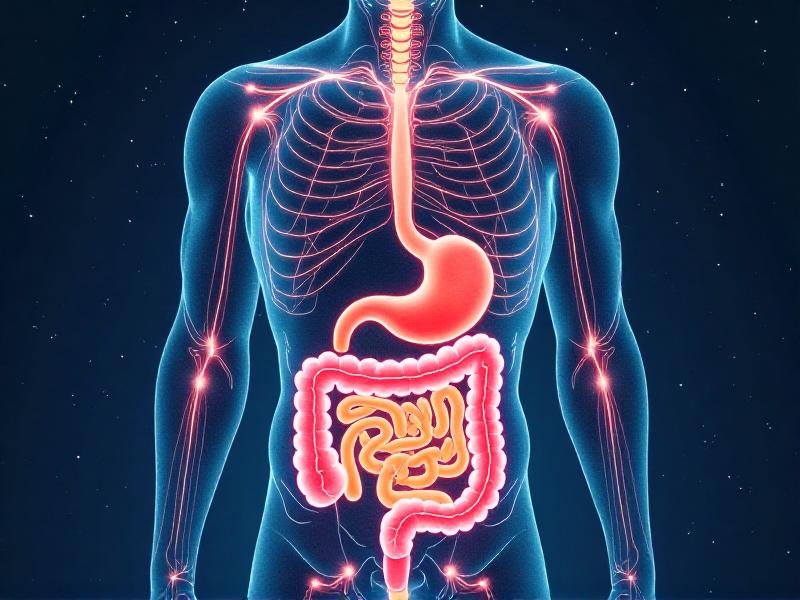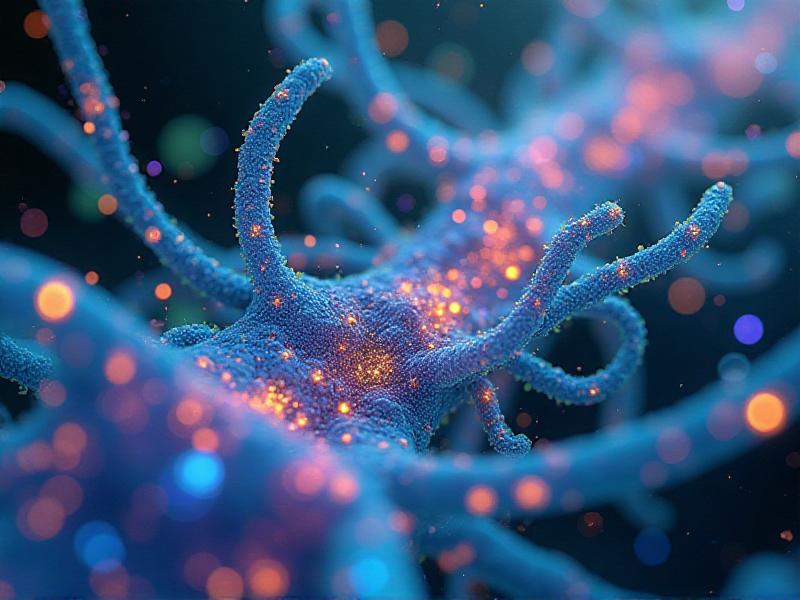Gut Instincts: When Microbes Speak to Your Mind
The Gut-Brain Connection: A Hidden Dialogue
For centuries, the gut has been referred to as the "second brain," and modern science is beginning to uncover why. The gut-brain axis, a complex communication network linking the gastrointestinal tract and the central nervous system, is at the heart of this fascinating relationship. This bidirectional pathway allows the gut to influence emotions, decision-making, and even mental health. But how does this happen? The answer lies in the trillions of microbes residing in our gut, collectively known as the gut microbiota.
These microbes produce a variety of neurotransmitters, such as serotonin and dopamine, which are crucial for regulating mood and behavior. In fact, about 90% of serotonin, often dubbed the "feel-good" hormone, is produced in the gut. This microbial activity doesn't just stop at chemical production; it also influences the immune system, inflammation levels, and even the integrity of the gut lining. When the gut is healthy, it sends positive signals to the brain, promoting mental clarity and emotional stability. Conversely, an imbalanced gut can lead to anxiety, depression, and cognitive decline.
Understanding this connection opens up new possibilities for treating mental health disorders. Probiotics, prebiotics, and dietary changes are emerging as powerful tools to modulate the gut microbiota and, in turn, improve brain function. The gut-brain axis is a testament to the intricate ways our bodies are interconnected, reminding us that true health is holistic.

Microbes as Messengers: How Gut Bacteria Influence Behavior
Have you ever felt a "gut feeling" about a decision? It turns out, this intuitive sense might be more than just a metaphor. Emerging research suggests that gut bacteria play a significant role in shaping our behavior and decision-making processes. These microbes communicate with the brain through various pathways, including the vagus nerve, the bloodstream, and the production of metabolites.
One of the most intriguing findings is the role of gut bacteria in stress responses. Studies have shown that certain strains of bacteria can reduce cortisol levels, the body's primary stress hormone. For example, Lactobacillus and Bifidobacterium species have been linked to lower anxiety and improved mood. On the flip side, an overgrowth of harmful bacteria can trigger inflammation and stress, leading to a vicious cycle of poor mental health.
But the influence of gut bacteria doesn't stop at stress. These microscopic inhabitants can also affect social behavior, appetite, and even risk-taking tendencies. Animal studies have demonstrated that mice with altered gut microbiota exhibit changes in social interactions and exploratory behavior. While more research is needed to fully understand these mechanisms in humans, the evidence so far points to a profound connection between our gut and our actions.

The Role of Diet in Shaping Your Gut Microbiota
Your diet not only influences your waistline but also the makeup of your gut bacteria. While a diet heavy in processed foods and sweets can cause dysbiosis, an imbalance in the gut microbiome, a diet rich in fibre, fruits, vegetables, and fermented foods stimulates the growth of helpful bacteria. From mental health problems to digestive problems, this imbalance has been linked to a number of medical conditions.
Fiber, in particular, is a powerhouse for gut health. It serves as a prebiotic, feeding the good bacteria and helping them thrive. Foods like oats, bananas, and asparagus are excellent sources of prebiotics. Fermented foods, such as yogurt, kimchi, and sauerkraut, introduce live probiotics into the gut, further supporting microbial diversity. On the other hand, a diet high in saturated fats and artificial additives can disrupt the delicate balance of the gut ecosystem, leading to inflammation and a weakened gut lining.
The Mediterranean diet, known for its emphasis on whole foods and healthy fats, has been shown to promote a diverse and resilient gut microbiome. This dietary pattern not only supports physical health but also enhances mental well-being. By making mindful food choices, you can cultivate a gut environment that fosters both physical and mental vitality.

Gut Health and Mental Health: A Two-Way Street
The relationship between gut health and mental health is a two-way street. Just as the gut can influence the brain, the brain can also impact the gut. Stress, anxiety, and depression can alter gut motility, increase inflammation, and disrupt the balance of gut bacteria. This bidirectional relationship underscores the importance of addressing both mental and physical health in tandem.
For individuals struggling with mental health disorders, targeting the gut may offer a novel approach to treatment. Psychobiotics, a term used to describe probiotics with mental health benefits, are gaining attention for their potential to alleviate symptoms of anxiety and depression. These beneficial bacteria work by modulating the gut-brain axis, reducing inflammation, and promoting the production of mood-regulating neurotransmitters.
Lifestyle factors, such as exercise and sleep, also play a crucial role in maintaining this delicate balance. Regular physical activity has been shown to increase microbial diversity, while poor sleep can negatively impact gut health. By adopting a holistic approach that includes diet, exercise, and stress management, you can support both your gut and your mind.

The Future of Gut-Brain Research: What Lies Ahead?
As our understanding of the gut-brain connection deepens, the potential applications of this research are vast. From personalized nutrition to innovative treatments for mental health disorders, the possibilities are exciting. Scientists are exploring the use of fecal microbiota transplantation (FMT) to restore healthy gut bacteria in individuals with conditions like irritable bowel syndrome (IBS) and depression. While still in its early stages, this approach holds promise for revolutionizing healthcare.
Another area of interest is the development of microbiome-based diagnostics. By analyzing the composition of an individual's gut microbiota, researchers may be able to predict susceptibility to certain diseases and tailor interventions accordingly. This personalized approach could pave the way for more effective and targeted treatments.
As we continue to unravel the mysteries of the gut-brain axis, one thing is clear: our gut instincts are more than just a metaphor. They are a reflection of the intricate dialogue between our microbes and our minds, reminding us that true health begins within.










